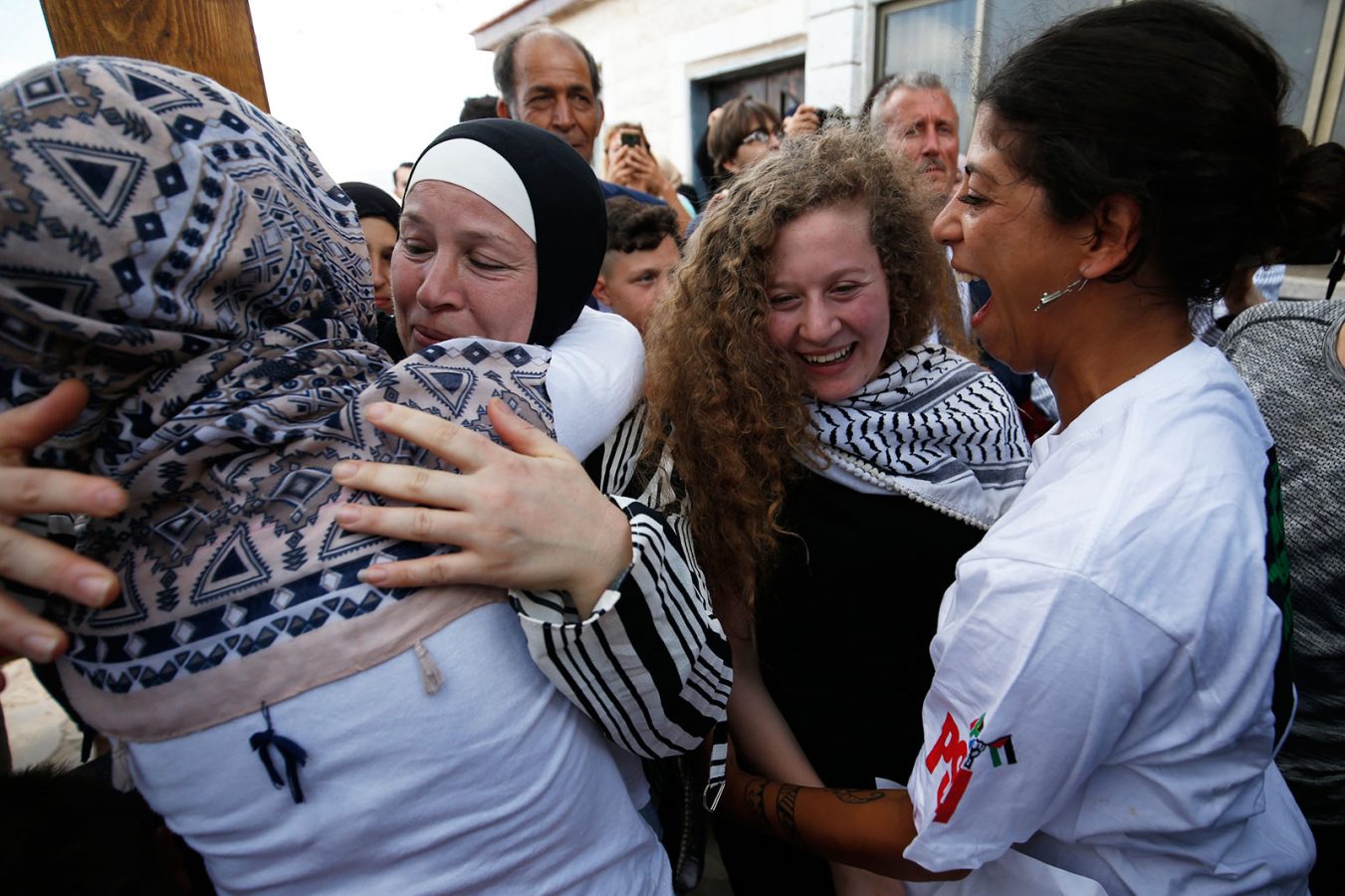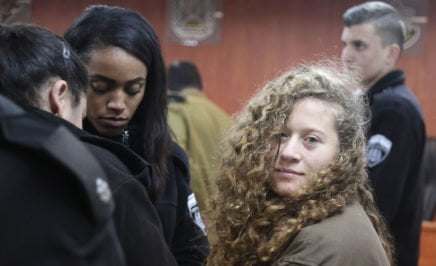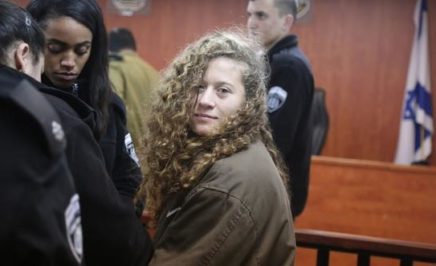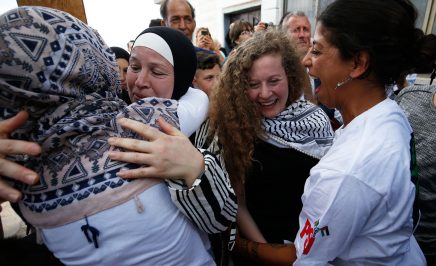Seventeen-year-old Ahed Tamimi is free today following her wrongful imprisonment in the Israeli-occupied West Bank.
What happened?
Ahed Tamimi and her family live in the village of Nabi Saleh. They face frequent violence from the Israeli army for protesting against the theft of their land and loss of water as result of Israeli settlement – a war crime stemming from Israel’s 50-year occupation of Palestinian land in the West Bank.We
Ahed Tamimi was arrested on 19 December 2017 after her mother Nariman Tamimi, also a prominent activist, posted a video showing Ahed slapping and kicking two Israeli soldiers in her home village of Nabi Saleh on 15 December.
In the video the soldiers, standing on the edge of the family’s walled front yard and armed with assault rifles, were able to lightly swat away Ahed’s slaps and kicks. On 19 December, Ahed was arrested during a night raid of her home by Israeli soldiers.
Ahed was convicted of incitement, aggravated assault and obstructing Israeli soldiers and sentenced to eight months in prison on 31 March 2018. Her conviction was disproportionate – as an unarmed teenage girl she posed no threat to two armed soldiers wearing protective gear.
Under the Convention on the Rights of the Child, to which Israel is a state party, the arrest and detention of a child must be used only as a measure of last resort and for the shortest appropriate period of time.
Her mother, who was also arrested and convicted to eight months in prison on similar charges, was also released today.
Israel’s detention of Palestinian children
The Israeli army prosecutes hundreds of Palestinian children in military courts every year. Children are often arrested in night raids and subject to ill-treatment, including blindfolding, interrogations without the presence of a lawyer, solitary confinement, and in some cases physical violence. During her detention Ahed endured aggressive interrogations where threats were made against her family by interrogators.
Palestinians are prosecuted by military courts for violating military orders. These military orders often criminalise activities such as peaceful political expression and organising and attending protests.
“Hundreds of Palestinian children continue to face the harsh conditions and abuse of the Israeli penitentiary system that flouts the principles of juvenile justice and standards for the treatment of prisoners.”
– Saleh Higazi
Israeli settlers living in the West Bank are never subject to the Israeli military court system, and are governed by Israeli civil law. Indeed, incidents of settler violence in the West Bank routinely go unpunished, while Palestinians are routinely targeted and arrested.
There are currently some 350 Palestinian children in Israeli prisons and detention centres, according to local human rights organisations. No other country in the world systematically tries children in military courts.
How did Amnesty respond?
News of Ahed’s arrest spread around the world in January and Amnesty supporters mobilised in support of Ahed. Over 18,000 Australians sent an email to Israeli Prime Minister Benjamin Netanyahu, asking him to release Ahed.
What next?
The release of Ahed Tamimi is welcome news but serves as a reminder of Israel’s continued human rights violations against Palestinian children.
“This is a huge relief for Ahed Tamimi’s loved ones but their joy will be tempered by the injustice of her imprisonment and the grim knowledge that many more Palestinian children still languish in Israeli jails, many despite not having committed any recognisable crime,” said Saleh Higazi, Head of Office in Jerusalem for Amnesty International.
“While Ahed’s freedom is welcome and long overdue, it must be followed by the release of the other children unlawfully imprisoned by Israeli military courts.”
– Saleh Higazi
“Ahed Tamimi’s release must not obscure the familiar and continuing story of the Israeli military using discriminatory policies to lock up Palestinian children. Her unjust imprisonment is a reminder of how the Israeli occupation uses the arbitrary military courts to punish those who challenge the occupation and illegal settlements expansion policies, without any regard to age.
“Hundreds of Palestinian children continue to face the harsh conditions and abuse of the Israeli penitentiary system that flouts the principles of juvenile justice and standards for the treatment of prisoners.
“While Ahed’s freedom is welcome and long overdue, it must be followed by the release of the other children unlawfully imprisoned by Israeli military courts.”







